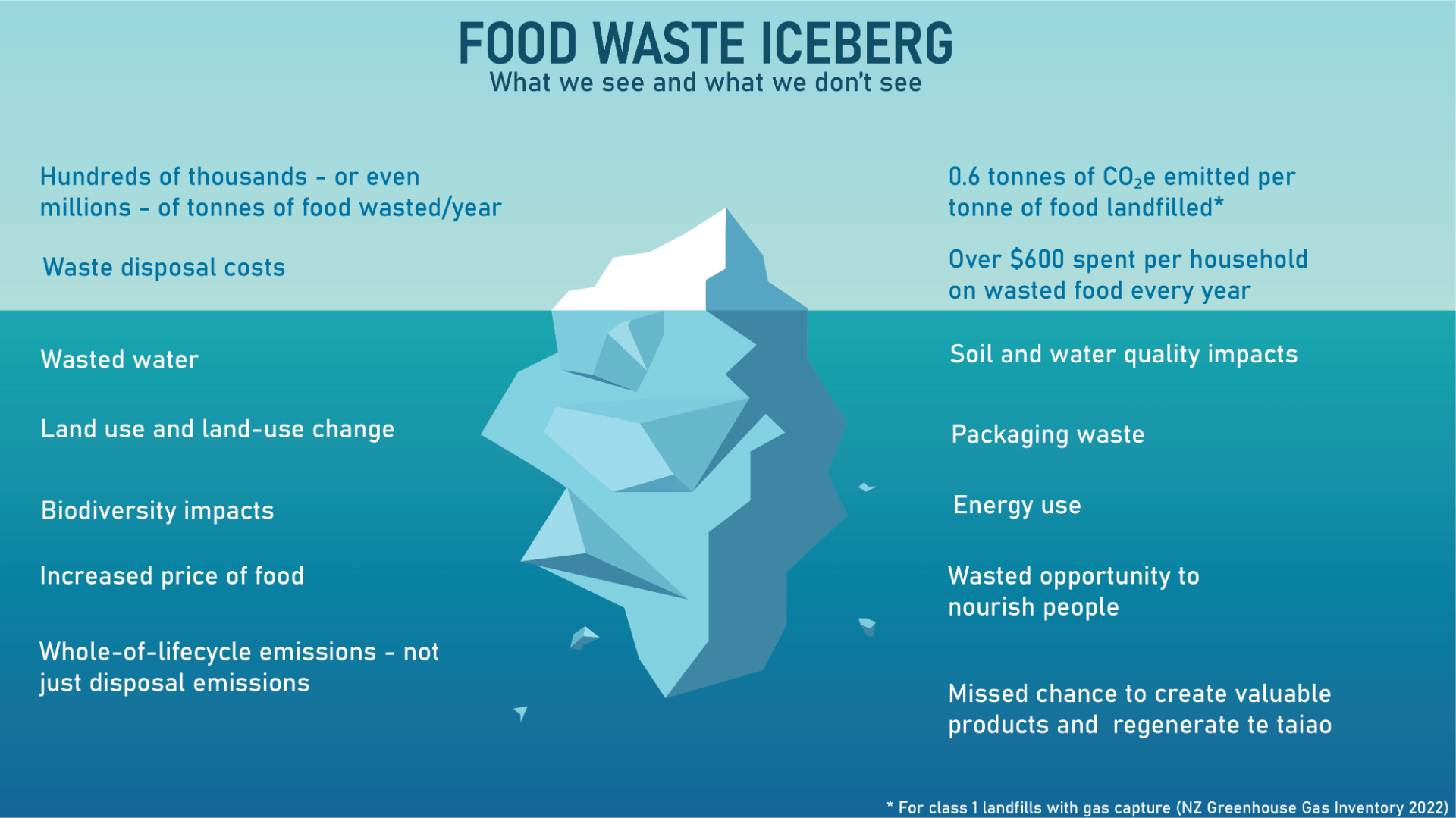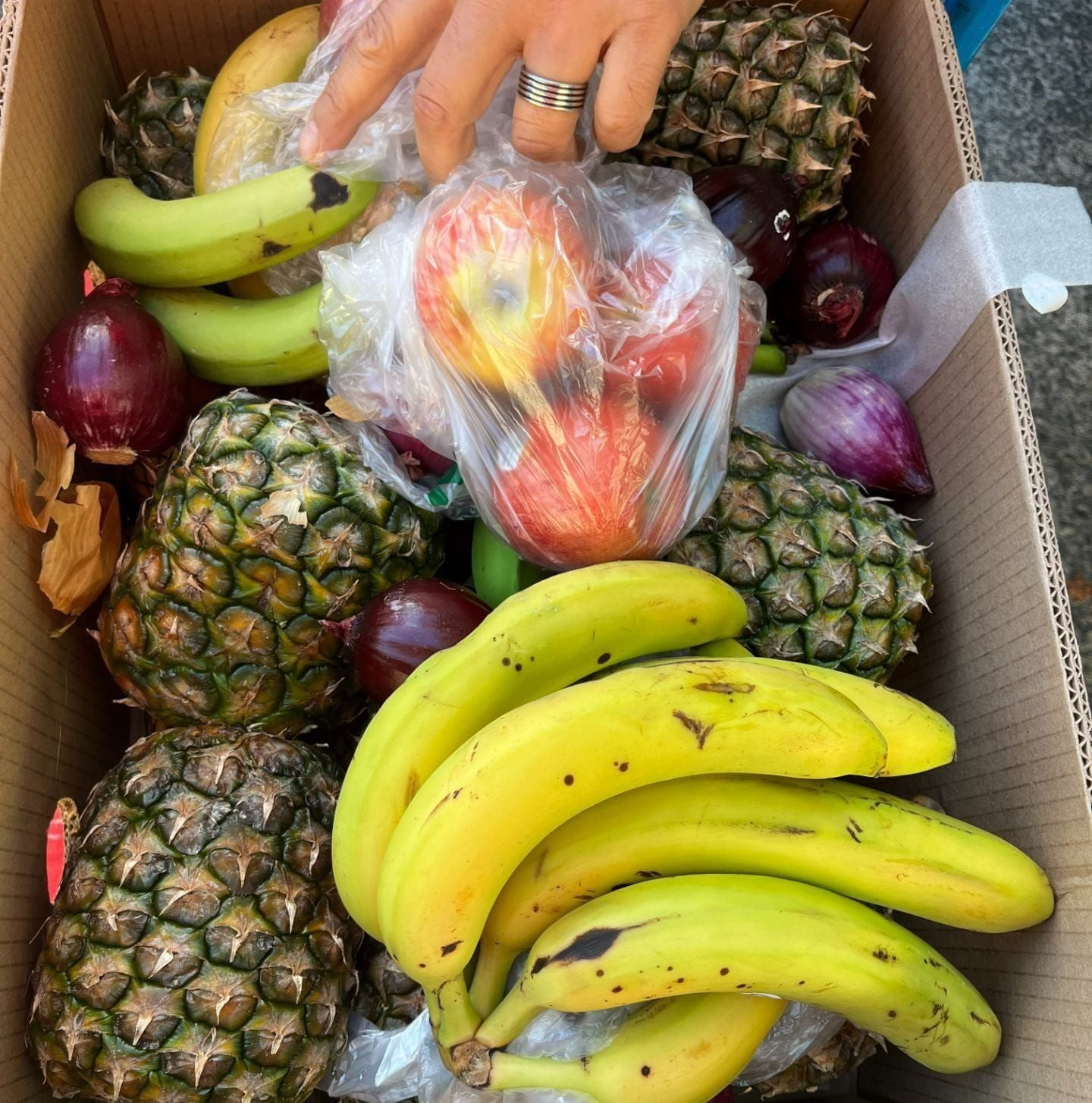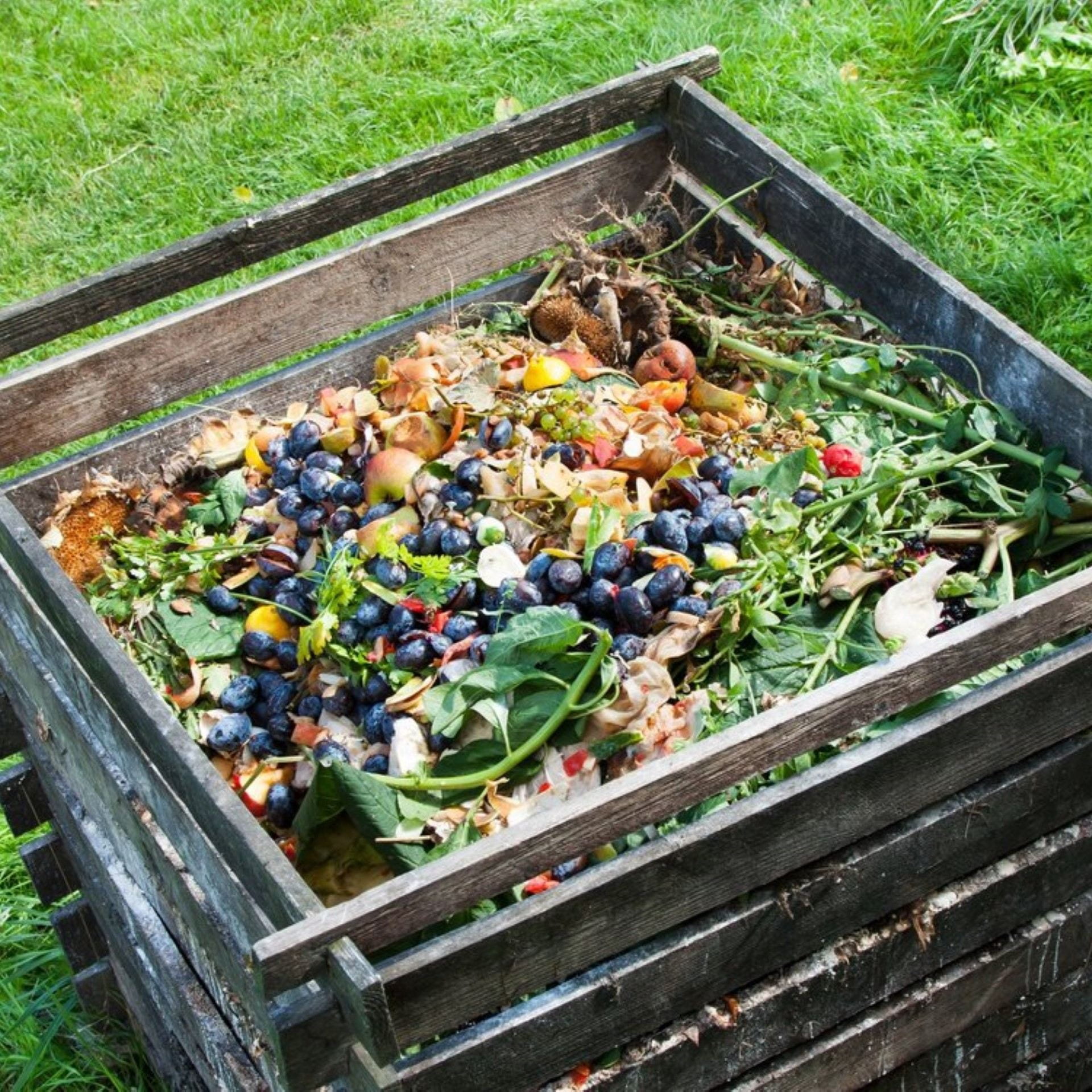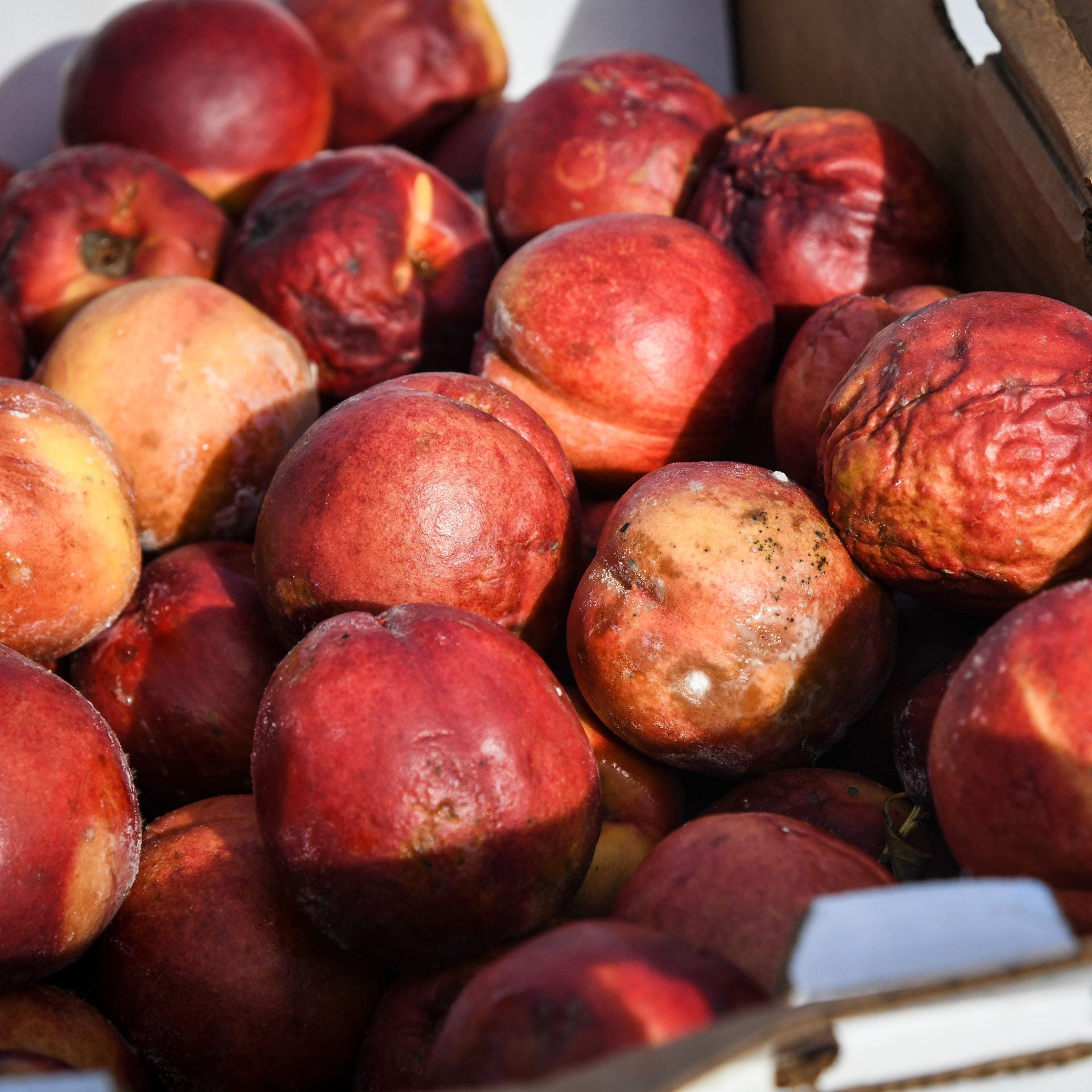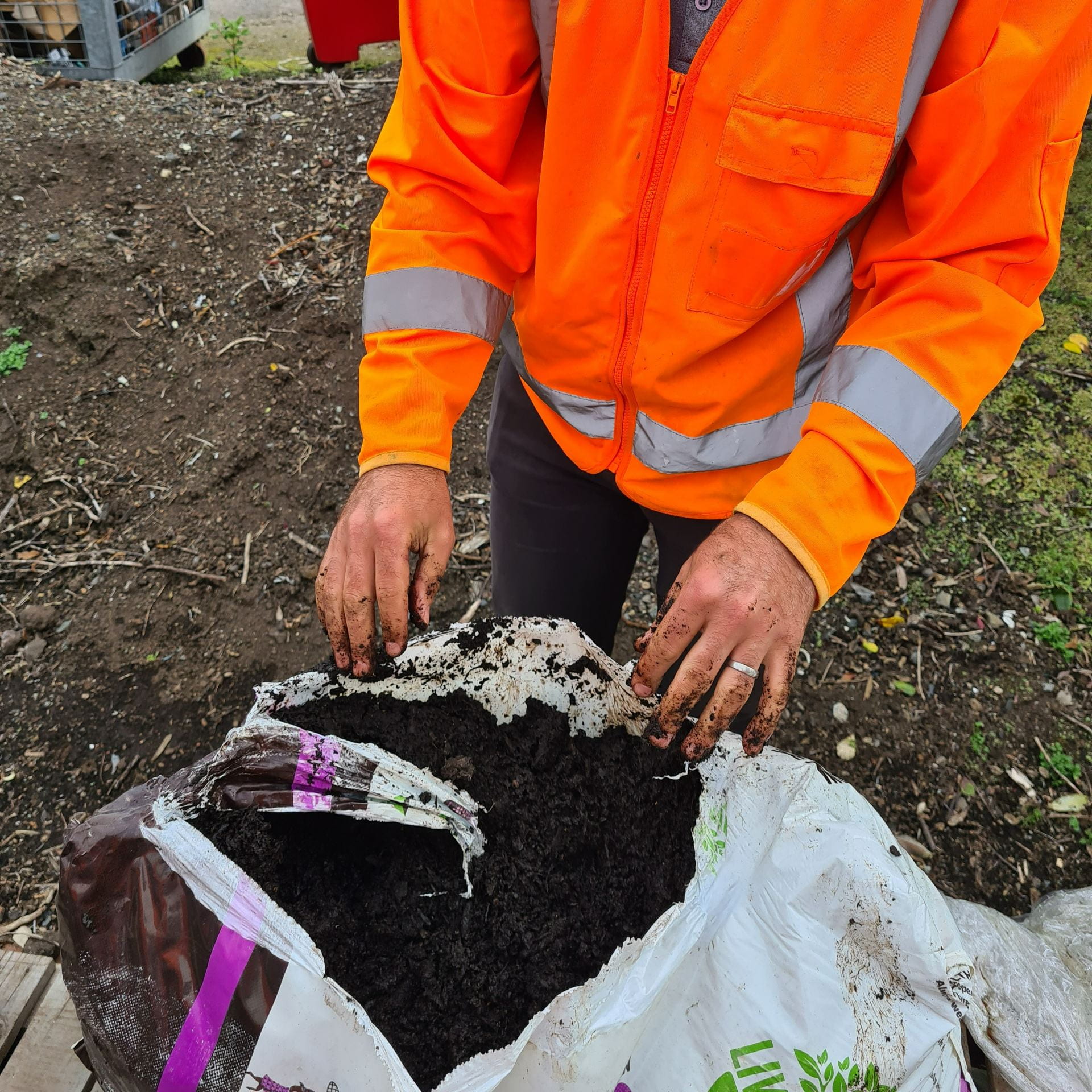Food loss and waste
Food that is produced for human consumption but not eaten due to waste throughout the food system has negative environmental, social, and economic impacts. Announced in April 2022, the office is delving into food loss and waste (FLW) as one of our major projects. We’re working with experts and stakeholders across the motu and drawing on international experiences to understand the problem and explore evidence-based solutions to alleviate food lost and wasted throughout the food system. For more details about the scope of this workstream, view the project framework.
The first three reports in our FLW series, as well as other resources we’ve published to date, can be found below.
Our reference group
Our mahi is guided and informed by experts and stakeholders from across the motu, who we are thrilled to be working with. A huge thank you to everyone who has reached out so far. Over 400 people are involved already – you can read their names in the reports below. The more the merrier – if you’d like to be on the reference group, please contact us info@pmcsa.ac.nz
Our reports
We are approaching this project as a series of reports tackling different parts of the food loss and waste puzzle. You can read the project publications below.
Food waste: A global and local problem
This report, the first in the series, explains why food waste is a problem, across environmental, social, and economic dimensions. It explores the definition of food waste, outlines what is known about the scale of problem globally and in Aotearoa and defines the scope of the OPMCSA food waste project. It finishes by highlighting the diversity of stakeholders involved in combatting food waste and summarising existing governmental and intergovernmental efforts.
Download Food waste: A global and local problem (PDF, 3440KB), released 8 July 2022, last updated 27 July 2022
Food rescue in 2022: Where to from here?
This report, the second in the series, outlines the context in which food rescue occurs – an Aotearoa where surplus food and food insecurity coexist. It then details the current operation of the rescue sector and the environmental and social benefits that flow from the sector’s work. It highlights the importance of a strong culture of food safety, engaged donors, a policy context that incentivises donation, recognition of the central role of volunteers, and access to the resources needed to manage the ‘surprise chain’ of donated food.
Download Food rescue in 2022: Where to from here? (PDF, 7100KB), released 20 October 2022, last updated 23 March 2023
Beyond the bin: Capturing value from food loss and waste
This report, the third in the series, outlines how we might capture value from food loss and waste (FLW) before it ends up in landfills. It covers upcycling, animal feed, material recovery, nutrient recovery, energy recovery, and disposal. The report explores technologies and approaches that facilitate value capture from FLW, but also highlights that a lack of knowledge on the composition of our FLW streams presents a challenge to systematically capturing value. The report concludes by acknowledging the tension between capturing value in the near team and avoiding FLW in the long term but seeks to resolve this tension through recommendations to the government that highlight that the problem is big enough for multiple solutions at different scales.
Download Beyond the bin: Capturing value from food loss and waste (PDF, 10MB), released 16 February 2024
Other resources
Other outputs related to the OPMCSA food waste project can be found below.
Project framework
The project framework outlines our approach to the food waste mahi. It also introduces the project vision: Everyone in the food system works collaboratively to reduce the environmental, social, and economic costs of food loss and waste by preventing it in the first instance and working to capture the value of surplus and wasted food where prevention doesn’t occur.
Download the framework (PDF, 216KB), released 17 May 2022, last updated 1 November 2023
Household food waste: Diversion to where?
Draft, not fully peer reviewed
This draft note explains the Ministry for the Environment’s proposal to mandate kerbside collection of household food waste. It explores options for processing food scraps, as well as the relationship between household food waste prevention, food scraps management in the home, and community and commercial processing options. This note is a work-in-progress, published in working draft form given the rapidly evolving policy context. Content from this note will be further developed and included in the third report in the OPMCSA food waste series.
Download Household food waste: Diversion to where? [Draft, not fully peer reviewed] (PDF, 990KB), released 10 December 2022
What can I do with my food waste?
A web explainer
This peer-reviewed explainer looks at how food waste can be transformed from rubbish to a resource through processes like composting, worm farming, anaerobic digestion, and beyond. It explains how a wide range of food waste processing options work, key benefits and challenges associated with each, and links to further resources for those seeking more detail. While focused on household food waste, it also contains information relevant to businesses and councils looking for food waste solutions.
View the full explainer ‘What can I do with my food waste?’, released 29 March 2023

